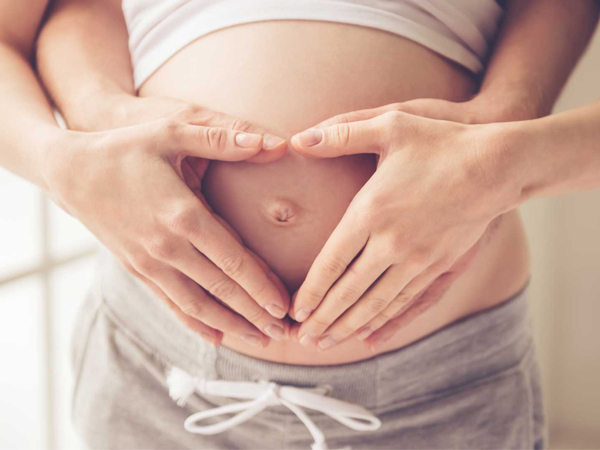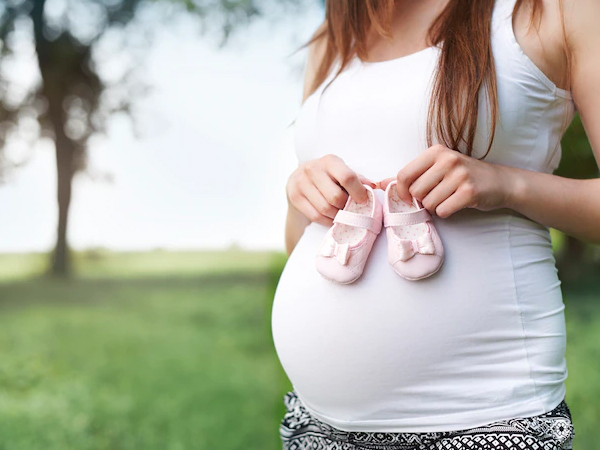Dr. Sudeshna Saha
High Risk Pregnancy Specialist in Kolkata, India
For Appointment Call + 91 98302 45993
Call Between Monday to Saturday 8 A.M. TO 6 P.M.
WhatsApp
+91 98302 45993


For Appointment Call + 91 98302 45993
Call Between Monday to Saturday 8 A.M. TO 6 P.M.
WhatsApp
+91 98302 45993



If you have a high-risk pregnancy, you might have questions. Will you need special prenatal care? Will your baby be OK?
Get the facts about high-risk pregnancies.
A high-risk pregnancy might pose challenges before, during or after delivery. If you have a high-risk pregnancy, you and your baby might need special monitoring or care throughout your pregnancy. Understand what causes a high-risk pregnancy, and what you can do to take care of yourself and your baby.
What are the risk factors for a high-risk pregnancy?
Sometimes a high-risk pregnancy is the result of a medical condition present before pregnancy. In other cases, a medical condition that develops during pregnancy for either mom or baby causes a pregnancy to become high risk. Specific factors that might contribute to a high-risk pregnancy include:
Advanced Maternal Age - Pregnancy risks are higher for mothers age 35 and older.
Lifestyle choices - Smoking cigarettes, drinking alcohol and using illegal drugs can put a pregnancy at risk.
Medical History - A prior C-section, low birth weight baby or preterm birth - birth before 37 weeks of pregnancy - might increase the risk in subsequent pregnancies. Other risk factors include a family history of genetic conditions, a history of pregnancy loss or the death of a baby shortly after birth.
Underlying conditions - Chronic conditions - such as diabetes, high blood pressure and epilepsy - increase pregnancy risks. A blood condition, such as anemia, an infection or an underlying mental health condition also can increase pregnancy risks.
Pregnancy complications - Various complications that develop during pregnancy pose risks, such as problems with the uterus, cervix or placenta. Other concerns might include too much amniotic fluid (polyhydramnios) or low amniotic fluid (oligohydramnios), restricted fetal growth, or Rh (rhesus) sensitization - a potentially serious condition that can occur when your blood group is Rh negative and your baby's blood group is Rh positive.
Multiple pregnancy - Pregnancy risks are higher for women carrying twins or higher order multiples.

What steps can I take to promote a healthy pregnancy?
Whether you know ahead of time that you'll have a high-risk pregnancy or you simply want to do whatever you can to prevent a high-risk pregnancy, stick to the basics. For example:
Schedule a preconception appointment - If you're thinking about becoming pregnant, consult your health care provider. He or she might counsel you to start taking a daily prenatal vitamin and reach a healthy weight before you become pregnant. If you have a medical condition, your treatment might need to be adjusted to prepare for pregnancy. Your health care provider might also discuss your risk of having a baby with a genetic condition.
Be cautious when using assisted reproductive technology (ART) - If you're planning to use ART to get pregnant, consider how many embryos will be implanted. Multiple pregnancies carry a higher risk of preterm labor.
Seek regular prenatal care - Prenatal visits can help your health care provider monitor your health and your baby's health. Depending on the circumstances, you might be referred to a specialist in maternal-fetal medicine, genetics, pediatrics or other areas.
Eat a healthy diet - During pregnancy, you'll need more folic acid, calcium, iron and other essential nutrients. A daily prenatal vitamin can help fill any gaps. Consult your health care provider if you have special nutrition needs due to a health condition, such as diabetes.
Gain weight wisely - Gaining the right amount of weight can support your baby's health - and make it easier to shed the extra pounds after delivery. Work with your health care provider to determine what's right for you.
Avoid risky substances - If you smoke, quit. Alcohol and illegal drugs are off-limits, too. Get your health care provider's OK before you start - or stop - taking any medications or supplements.

What are the risk factors for a high-risk pregnancy?
Sometimes a high-risk pregnancy is the result of a medical condition present before pregnancy. In other cases, a medical condition that develops during pregnancy for either mom or baby causes a pregnancy to become high risk. Specific factors that might contribute to a high-risk pregnancy include:
Advanced Maternal Age - Pregnancy risks are higher for mothers age 35 and older.
Lifestyle choices - Smoking cigarettes, drinking alcohol and using illegal drugs can put a pregnancy at risk.
Medical History - A prior C-section, low birth weight baby or preterm birth - birth before 37 weeks of pregnancy - might increase the risk in subsequent pregnancies. Other risk factors include a family history of genetic conditions, a history of pregnancy loss or the death of a baby shortly after birth.
Underlying conditions - Chronic conditions - such as diabetes, high blood pressure and epilepsy - increase pregnancy risks. A blood condition, such as anemia, an infection or an underlying mental health condition also can increase pregnancy risks.
Pregnancy complications - Various complications that develop during pregnancy pose risks, such as problems with the uterus, cervix or placenta. Other concerns might include too much amniotic fluid (polyhydramnios) or low amniotic fluid (oligohydramnios), restricted fetal growth, or Rh (rhesus) sensitization - a potentially serious condition that can occur when your blood group is Rh negative and your baby's blood group is Rh positive.
Multiple pregnancy - Pregnancy risks are higher for women carrying twins or higher order multiples.
Do I need special tests?
If you have a high-risk pregnancy, you might consider various tests or procedures in addition to routine prenatal screening tests. Depending on the circumstances, your health care provider might recommend:
Specialized or targeted ultrasound - This type of fetal ultrasound - an imaging technique that uses high-frequency sound waves to produce images of a baby in the uterus - targets a suspected problem, such as abnormal development.
Amniocentesis - During this procedure, a sample of the fluid that surrounds and protects a baby during pregnancy (amniotic fluid) is withdrawn from the uterus. Typically done after week 15 of pregnancy, amniocentesis can identify certain genetic conditions, as well as neural tube defects - serious abnormalities of the brain or spinal cord.
Chorionic villus sampling (CVS) - During this procedure, a sample of cells is removed from the placenta. Typically done between weeks 10 and 12 of pregnancy, CVS can identify certain genetic conditions.
Cordocentesis - This test, also known as percutaneous umbilical blood sampling, is a highly specialized prenatal test in which a fetal blood sample is removed from the umbilical cord. Typically done after week 18 of pregnancy, the test can identify chromosomal conditions, blood disorders and infections.
Cervical length measurement - Your health care provider might use an ultrasound to measure the length of your cervix at prenatal appointments to determine if you're at risk of preterm labor.
Lab tests - Your health care provider might take a swab of your vaginal secretions to check for fetal fibronectin - a substance that acts like a glue between the fetal sac and the lining of the uterus. The presence of fetal fibronectin might be a sign of preterm labor.
Biophysical Profile - This prenatal test is used to check on a baby's well-being. The test combines fetal heart rate monitoring (nonstress test) and fetal ultrasound.
Some Prenatal Diagnostic Tests - such as amniocentesis and chorionic villus sampling - carry a small risk of pregnancy loss. Ultimately, the decision to pursue prenatal testing is up to you

What age is high risk to have a baby?
Age 35 is considered advanced maternal age, but the risks increase as a woman ages. If you are pregnant and over the age of 30, talk with your doctor about your individual health and discuss plans for helping you and your developing baby maintain a healthy pregnancy.
What does it mean to have a High Risk Pregnancy?
A high-risk pregnancy is one that threatens the health or life of the mother or her fetus. For most women, early and regular prenatal care promotes a healthy pregnancy and delivery without complications. But some women are at an increased risk for complications even before they get pregnant for a variety of reasons.
What is a risk of Pregnancy?
Uncontrolled gestational diabetes increases the risk for preterm labor and delivery, preeclampsia, and high blood pressure. Preeclampsia and eclampsia. Preeclampsia is a syndrome marked by a sudden increase in the blood pressure of a pregnant woman after the 20th week of pregnancy.
What is CHTN?
CHTN is differentiated from gestational hypertension, which develops after 20 wk of pregnancy. In either case, hypertension is defined as systolic BP > 140 mm Hg or diastolic BP > 90 mm Hg on 2 occasions > 24 h apart.